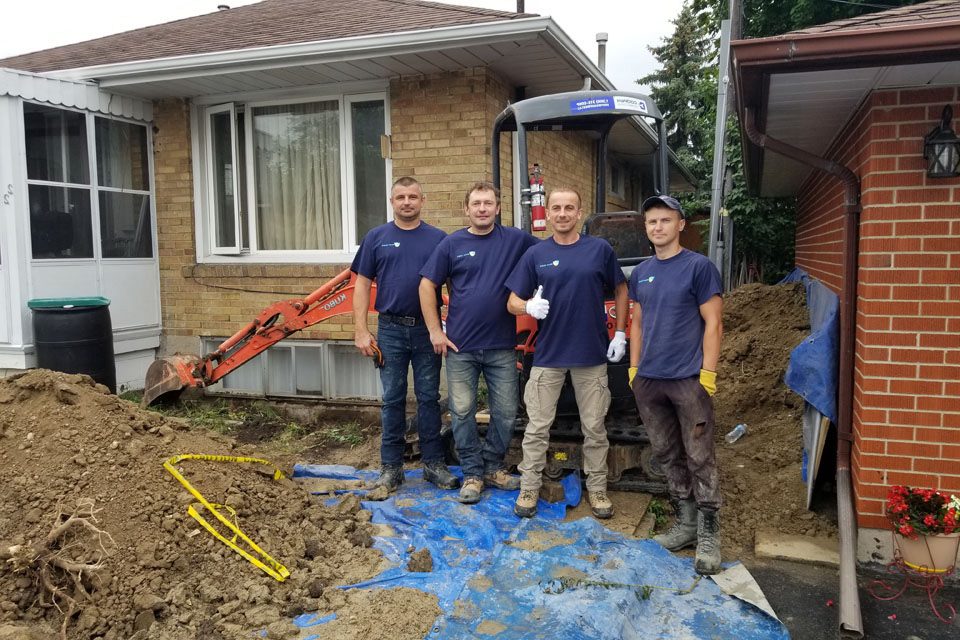Believe it or not, there are things you can do to help prevent plumbing disasters from occurring in your home. Of course, there are still some situations that cannot be avoided, like flooding from heavy downpours. By being proactive, you could potentially be saving yourself time and money.
We have put this guide together to help you protect your property against plumbing disasters, teach you about the different plumbing devices that can be found in your home and help you prepare your plumbing for each changing season.
Feel free to download this guide and use it as a tool to help better understand what you can do to be more proactive with your plumbing. Make sure to pass it along to your friends and family as well!
WHY YOUR HOME PLUMBING MATTERS
You should never underestimate the true value of proper plumbing and good drainage. The pleasant environment at your home can turn disasterous without the presence of these basic services.
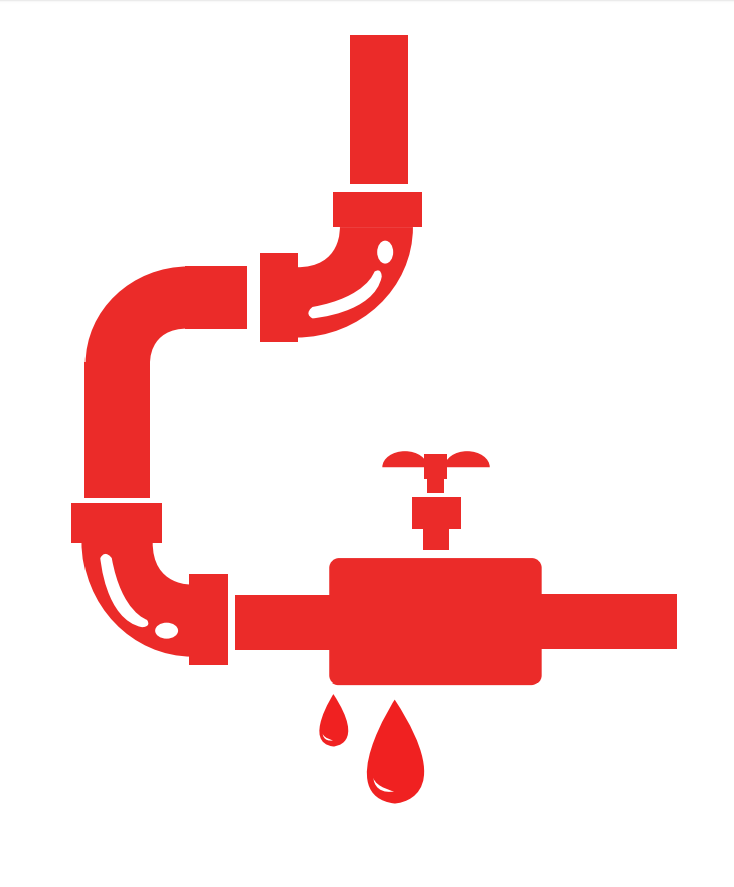
You should not only be concerned about leaking pipes but also poor drainage. Remember, water can be one of your worst enemies, and it can destroy your property in many ways inside and out. Therefore, you should always check and maintain your drainage system.
The most common drainage issues occur in kitchens and bathrooms. Here, you can face a lot of water threats from leaking pipes to heavy rainfall, but this is something that can be managed. No one’s property is perfectly waterproof, but the damages are greatly minimized when you are proactive and identify potential threats before they happen.
This guide will help inform you about the steps you can take to prevent plumbing disasters by being proactive. You can download a PDF copy of this guide here.
By being aware of what is happening around your house, both indoors and outdoors, you can prevent the headaches that come along with unexpected problems and expensive plumbing repairs.
Plumbing 101
Plumbing can seem complicated. There are so many different components and devices that make up the plumbing system in your home or place of business. Here is a breakdown of the most important terms you will hear and what they do.

Backwater Valve
A backwater valve is a device that prevents the main sewer line from backing up into your basement. The valve closes automatically if sewage backs up from the main sewer.

Sump Pump
A sump pump is used to remove water that has accumulated in a water collecting sump pump basin. The sump pump is usally found in the basement.

Hot Water Tank
A hot water tank is a device that heats water in your home so that you can use it to take a shower or bath, use your dishwasher and washing machine.

Safety Shutoff Valve
When the safety shutoff valve is tripped, it is an indication that there has been a failure in the system. The valve can stop the flow of water to prevent flooding.
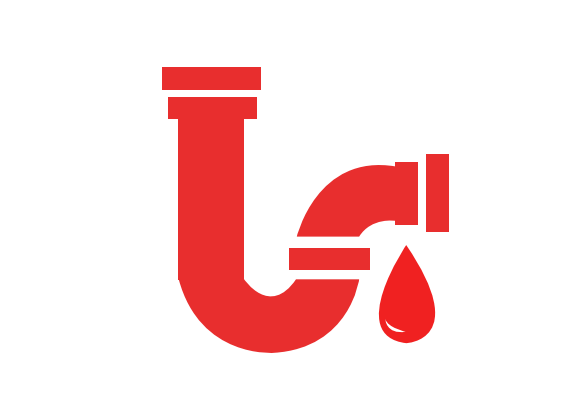
Lead Pipes
If your home was built prior to the 1950’s there is a chance that your pipes are made from lead. Lead pipes can contaminate your drinking water and should be changed.

Basement Waterproofing
Basement waterproofing is a process to prevent water from entering your home, which could lead to flooding. The foundation around your home is excavated to allow for easy access to the walls. Special materials are used to seal any cracks.
CARING FOR YOUR PLUMBING OUTDOORS
Most plumbing projects aren’t planned so it’s important to catch issues before they occur. There are steps you can take to be proactive with your outdoor plumbing. Be aware of how your plumbing system is set up. If you don’t know, consult a plumber who can provide an inspection and help explain it to you.
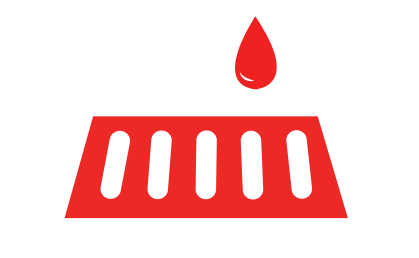
Drainage
Proper drainage is key for preventing flooding. It’s important to be aware of where the wa- ter goes after a heavy rainfall. Depending on the positioning of your home, water could be draininig directly towards your house which could be disasterous and could lead to flooding.
Here are some things you can do to improve your drainage:
- If there is a downwards slope toward your house, make sure that the water has a place to go. By doing this, you are reducing the risk of having the water enter your home, especially after a heavy downpour.
Clear eavestroughs of all debris, including leaves and sticks to allow for easy water flow. - Being conscious of how your plumbing system works is a beneficial skill. There is a chance that you may have to spend money making a few repairs, but it beats the cost of having to pay for something unexpected like a basement flooding or water pipes that have burst.
- Ensure that all water spouts are attached and are pointed away from your house.
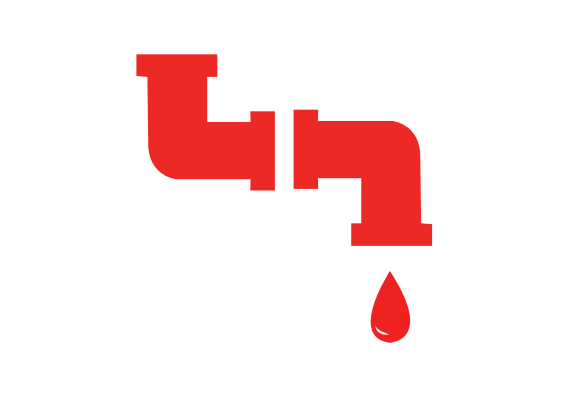
Piping
During the warm months, your outdoor water sources get a lot of use, such as watering your lawn or garden, washing your car or playing in the sprinkler. Make sure you don’t forget to care for your outdoor water sources when the winter months come around. Even though they won’t be in use, they could cause damage to your property if you aren’t prepared.
Here are some things you can do to prepare your outdoor water sources:
- Make sure all outdoor water faucets are turned off when they aren’t in use.
- During the winter months, ensure that water is turned off to avoid pipes from freezing.
- Monitor the plumbing of your hot tub and pool to make sure it’s in working order.
CARING FOR YOUR PLUMBING INDOORS
Being conscious of how your plumbing system works is a beneficial skill. There is a chance that you may have to spend money making a few repairs, but it beats the cost of having to pay for something unexpected like a basement flooding or water pipes that have burst.
Just like being proactive outdoors, there are a number of things that you can do indoors to prevent plumbing problems. By following these steps you could potentially be saving yourself money long term and avoid any surprises in your kitchen, bathroom or basement.
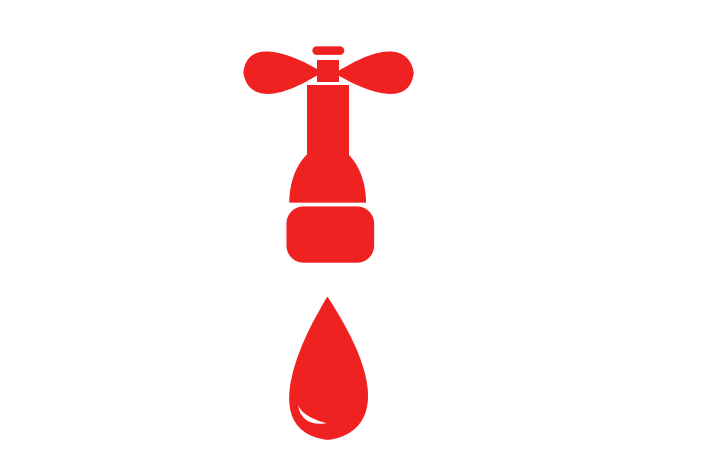
IN YOUR KITCHEN
You spend a lot of time in your kitchen so it would be frustrating to have to deal with a plumbing problem here.
Dispose of Waste Properly
Avoid pouring items other than safe liquids down your kitchen drain. Items like cleaning products and scraps from your meal should not make their way down your piping. Especially avoid pouring cooking fat, like bacon grease, down your drain.
Plumbing
Be aware of anything that could be happening under your sink. Any leaky pipe that goes unnoticed could do a lot of damage in a short period of time.
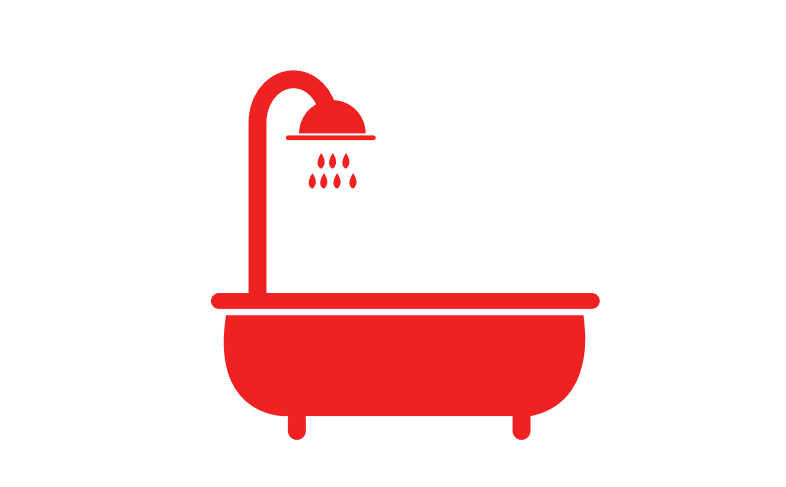
IN YOUR BATHROOM
A lot of things can go wrong in your bathroom if you aren’t careful. Be consious of what you are putting down your drains.
Be Aware of What is Going Down the Drain
Be conscious of what is going down your shower drain. Hair and fur from your pet can eventually lead to a build up in your pipes.
Be Conscious of What You Are Flushing
Be aware of what you are flushing down your toilet, this could also lead to issues with your pipes down the road.
DID YOU KNOW: one flush of the toilet uses 6 ½ gallons of water?
CARING FOR YOUR PLUMBING INDOORS

IN YOUR BASEMENT
Your basement is a hot spot for plumbing disasters. A lot of things can go wrong here since this is where most plumbing diverts to. Basement flooding can be costly and time consuming to clean up. Flooding can occur as the result of heavy rain, melting snow, poor waterproofing or frozen pipes that have burst. Here are some ways to avoid flooding in your basement and what to do if you do experience basement flooding.
Backwater Valve
If you live in an area that is prone to flooding, consider installing a backwater valve.
Sump Pump
If you have experienced issues with sewage backup or flooding in the past, consider installing a sump pump.
Waterproofing
Consider waterproofing your basement if you have experienced flooding in the past. This also increases the value of your home. Be conscious of the places that water could be entering your home and could eventually cause damage, such as cracks in floors, windows or walls.
Entering Your Basement After a Flood
In the case of a flooded basement, it is extremely important that you do not enter if there is a chance that electronics are plugged in. You risk the chance of being electrocuted.
If you detect that there may be something wrong with your plumbing, make sure to contact a plumber right away. Don’t ignore the problem because it will only get worse and more costly. If you do experience basement flooding, make sure to also contact your insurance company to notify them of the issue.
DID YOU KNOW: a leaky faucet can waste 100 gallons of water a day?
How to Prevent Basement Flooding
Depending on where you live, there are sometimes subsidies available to you. It’s important to do your research. If you live in the GTA here are a couple:
- City of Toronto Basement Flooding Protection Subsidy Program
- Priority Lead Water Service Replacement Program
- Region of Peel Sanitary Backwater Valve Rebate Program
SEASONAL PLUMBING CHECKLIST
It’s important to be smart with your plumbing and prepare ahead of time for the changing of seasons. By doing so, you are able to deter plumbing disasters from occuring, like pipes bursting or possible flooding. Here are some ways that you can be proactive.

Preparing for Winter
Winter can bring forth a number of plumbing issues if you aren’t prepared. Plan a weekend before the cold months arrive to prepare your plumbing for winter to avoid costly repairs in the spring.
- Ensure that all outside faucets are turned off.
- Drain all exterior pipes of excess water to prevent them from bursting when the temperature drops.
- If you go on vacation, turn off your hot water tank in case there is a power outage. This could lead to your pipes freezing.
- Detach any exterior hoses that may freeze.

Preparing for Spring
With spring comes melting snow, lots of rain, and clean up of natural debris. Here are some things you can do to prepare for spring.
- Make sure that there is proper drainage for melting snow and spring showers.
- Ensure gutters and downspouts are free of debris.
- Check faucets and hoses to make sure water is able to flow freely.
- Double-check that outdoor faucets are in good working condition including fixing any leaks.
TIP: Water your lawn only when it needs it. If you step on the grass and it springs back up when you move, it doesn’t need water. If it stays flat, it does need water.
USEFUL RESOURCES
Plumbing can be expensive, especially when you aren’t prepared for it. Depending on where you live, there are subsidies available to you. Check on your municipality’s website or call the office to see what is available to you.
Here is a list of resources that might be able to help you cover the cost of your next plumbing project.
City of Toronto Basement Flooding Protection Subsidy Program
To assist with the cost of protecting your basement, the City offers a financial subsidy of $3,400 per property to install a backwater valve, sump pump and pipe severance, and capping of the home’s storm sewer or external weeping tile connection.
Priority Lead Water Service Replacement Program
Was your house built prior to the mid 1950’s? If so, there is a chance that your pipes are made of lead, which is a hazard to your health. As a homeowner, it is your responsibility to do the research and find out if you are at risk. In 2011, The Priority Lead Water Service Replacement Program was developed to help assist homeowners with the burden of replacing lead piping in their homes. Since then, the City has aimed to assist 1,500 homes every year.
Region of Peel Sanitary Backwater Valve Rebate Program
If you live in the Peel Region (Mississauga or Brampton) and meet the specified criteria, there is a Sanitary Backwater Valve Rebate Program available to you, for up to $700. Not only could this help prevent future flooding, but it’s also an opportunity to save some money.
ABOUT WATER GUARD PLUMBING
The plumbers at Water Guard Plumbing pride themselves on their professionalism and ability to complete a job in a timely manner, to an industry standard. Since it’s establishment in 2006, Water Guard Plumbing has worked with a number of contractors and home owners on a variety of different projects.
Owner and plumber, Vasyl Pygrodskyy has over 15 years of experience in the plumbing industry. He’s knowledgeable and friendly nature is why he has received tremendous feedback from past customers. His clients have been more than willing to refer Water Guard Plumbing to their friends and family. Water Guard Plumbing is available for emergency plumbing repairs, 24 hours a day.
Backwater valve and sump pump installation, waterproofing, drain rooter services, and lead pipe replacement are among their most common projects. Water Guard Plumbing services Toronto and the GTA including, but not limited to Mississauga, Brampton, Oakville, Hamilton and Burlington.
If you find yourself facing a plumbing problem, DIY solutions usually won’t work and may put your property under risk of water damage. Hire a professional plumbing company to assess the situation and provide a solution using professional plumbing tools.
Please feel free to contact the Water Guard Plumbers at 647-832-1738. You can also follow us on Twitter and Facebook for more plumbing tips.

